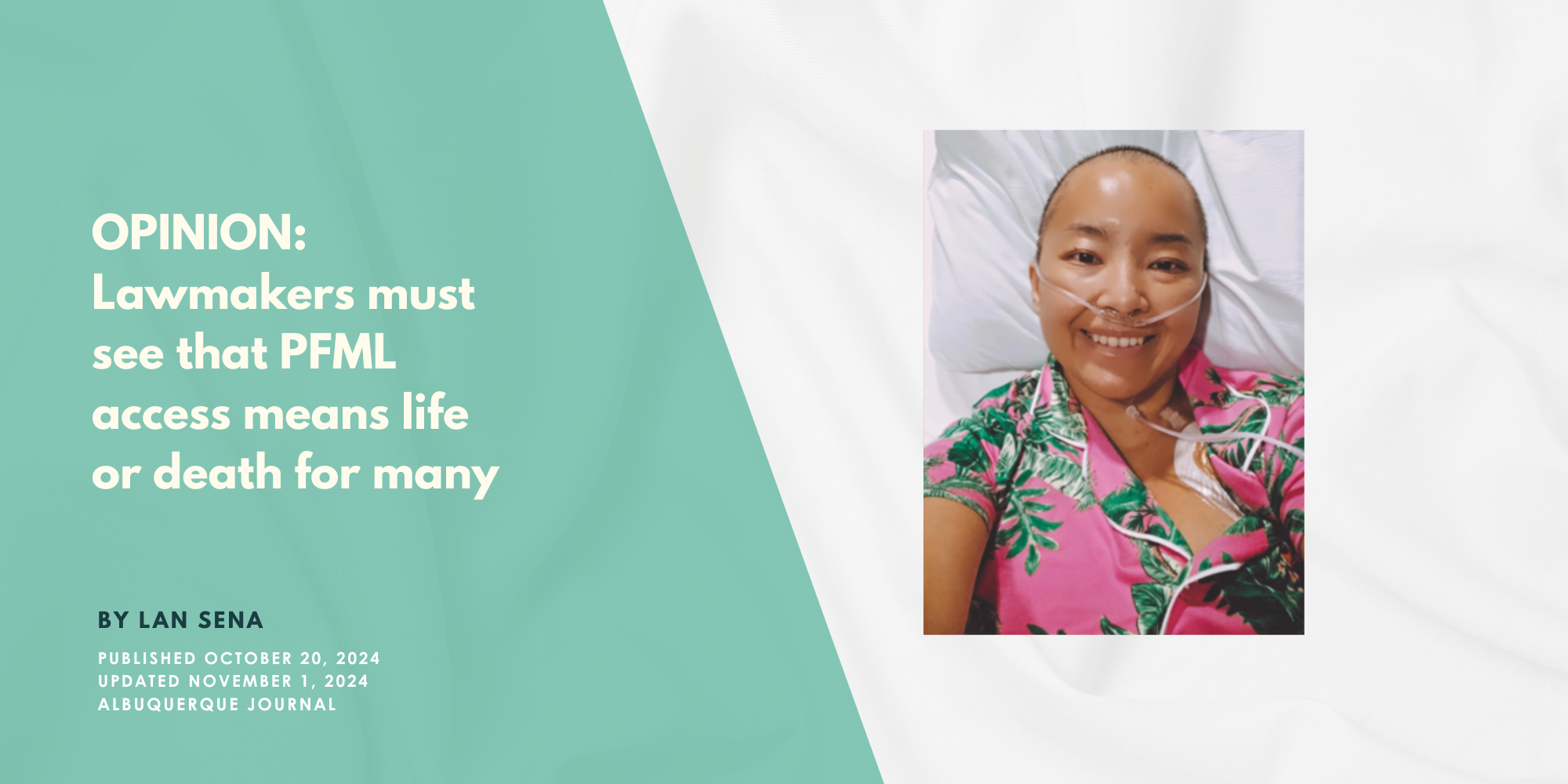
In the past month, I have been hospitalized while undergoing a lifesaving bone marrow transplant. The three months after my transplant will be critical to whether or not I live and may determine the quality of life I will have in the future.
I walk the halls of my transplant unit, talking with patients that are here alone. Many of them are struggling financially and don’t have the support that I find myself privileged to have. Privileges like having my husband here to help navigate the arduous challenges like getting up each day or ensuring I’m eating enough.
My husband does not have access to paid family medical leave and has been working by my bedside each day. But on the days that I was in the intensive care unit, fighting for my life, being on the clock was the least of his worries. I am fortunate enough to have access to paid family medical leave so that we both don’t have to worry about our finances. Being in the hospital is costly, not just in medical bills, but in housing and food.
My own sister jeopardized her job to be my donor because she does not have access to paid family medical leave. She risked everything and had to adjust her finances because being a bone marrow donor isn’t a qualifying event for FMLA.
I’m not the lone New Mexican on this ward far from home, as New Mexico lacks the health care infrastructure to provide bone marrow transplant from donors, requiring us to travel across state lines to access the critical care we need. Not having access to paid family medical leave only compounds the hardships we face. The physical, mental and financial toll that the transplant has placed on us should be enough, yet many of us New Mexicans continue to worry about what the next 12 weeks will bring.
Rep. Joseph Sanchez published an op-ed in the Albuquerque Journal on Oct. 10 “Where I stand on paid family medical leave” calling for a severely weakened version of paid family and medical leave, that would provide only six weeks of leave for people like me, who are fighting for their lives. An insufficient amount of time for bone marrow transplants recipients and many other cancer patients going through treatment that require extensive recovery periods and for caregivers to provide the necessary care to keep patients alive. A 12-week paid family medical leave would allow workers and businesses to not only provide financial stability during a health crisis, but it would likely increase productivity and increase the donor pool for blood cancer patients in need of a bone marrow transplant.
However, it’s a false choice to choose between our health and the economy as other states have passed 12-week policies and have seen significant benefits to people’s health, businesses and the economy.
I encourage the Legislature to look beyond the surface of policy and evaluate the real-world implications, as the representative said. I invite them to walk the halls with me in the hospital to understand how access to paid family medical leave is not a safety net, but the determination of life or death for many cancer patients.
For paid family medical leave to be effective, it must include a comprehensive 12-week leave that does not leave patients, like myself, behind because that is what reflects New Mexican values. We must be inclusive to consider all patients, families and their circumstances for needing access to paid family medical leave and not just see us as an economical burden or a policy choice.
By Lan Sena, stage 4 cancer patient
Published Oct 20, 2024 Updated Nov 1, 2024
Albuquerque Journal
